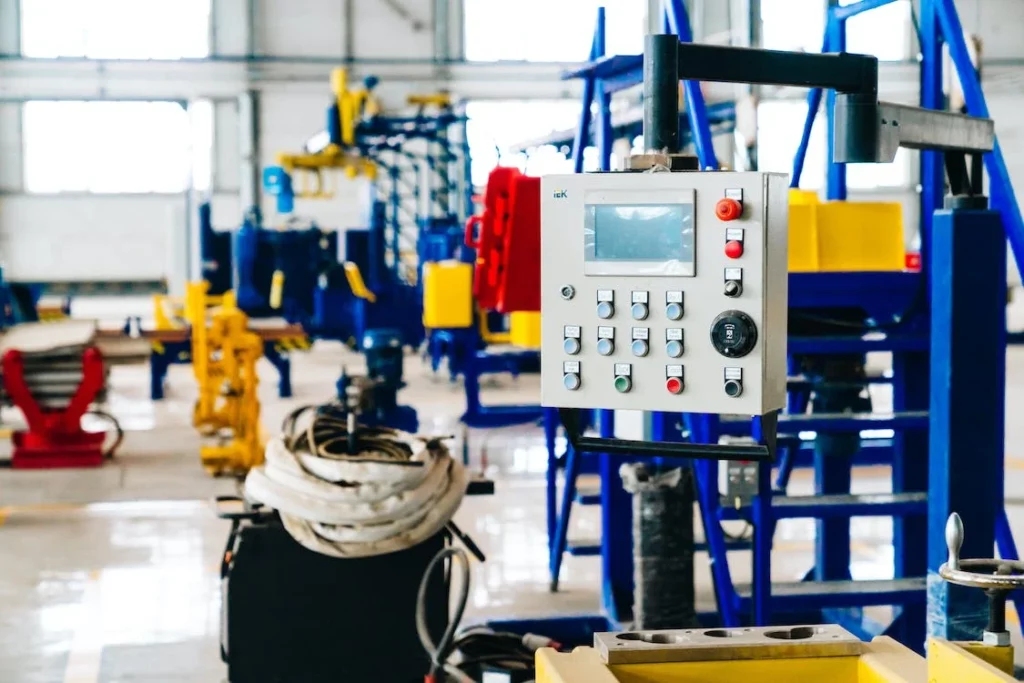Industrial automation is a step forward for industrial businesses. It can help you improve productivity, safety, quality, and return on investment.
What is Industrial Automation?
Industrial automation can be described as a method of production which utilizes control systems like computers, robots, and other automation systems. Industrial automation has been proven to improve workplace safety drastically. This is especially important for industrial businesses, which are often subject to strict worker safety and health regulations. Many regulations require that industrial facilities have an acceptable level of employee protection equipment, including sensors that detect radiation levels in the air or on surfaces and lights and alarms when something goes wrong.
Benefits of Industrial Automation
- Improving Workplace Safety
Industrial automation can improve workplace safety in several ways. Industrial robots, for example, are highly accurate machines that can perform repetitive tasks without human error. They also eliminate the need for human intervention in many workplaces and eliminate the risk of injury by removing manual labour.
Human error is one of the leading causes of workplace accidents; industrial automation has been shown to dramatically reduce these cases by reducing or eliminating human mistakes when performing repetitive tasks such as assembly line work or packaging products at high speeds. Industrial robots are programmed with instructions, so they don’t make errors while they complete their assigned tasks; they’re also equipped with sensors that alert them if something goes wrong so they can stop, if necessary, before causing any damage or harm to themselves or anyone else nearby.
- Minimizing Downtime
Maximizing output and minimizing downtime are the keys to maximizing productivity, especially in industries like manufacturing. Industrial automation can play a major role by providing optimal production when needed without requiring excessive human intervention.
One way that industrial automation can help minimize downtime is through predictive maintenance. For example, suppose your equipment is due for routine maintenance every 100 hours but has already logged 165 hours since its last check-up. In that case, an automated inspection system will alert you that it’s time for service before any problems arise—which means no downtime because your machine was taken offline early enough to be repaired before too much damage was done.
- Maximizing Productivity
Maximizing productivity means maximizing the number of goods or services produced per hour, day, week, month, or year. This can be accomplished by increasing production speed and efficiency. Workforce management software allows you to better utilize your workforce by assigning tasks based on skill level and availability, as well as ensuring that all resources are being used efficiently.
- Improved Product Quality
Industrial automation improves product quality in a variety of ways. First, it allows for tighter control over production processes. This means that you will be able to make more consistent products, which leads to higher-quality products and less waste. Industrial automation also allows you to always keep an eye on your machines—including when they’re running autonomously—and identify faulty parts before they reach your customers.
- Improved Return on Investment
The Return on Investment is a crucial factor in deciding whether to automate a process. ROI can be calculated by comparing the cost of automation to the cost of operating without automation. If your business has been profitable up until this point, and you decide to automate, it will likely become even more profitable after your investment in industrial automation pays off.
The Positive Impact of Automation on Industries
Industrial automation has proven to be the next big step in improving productivity and safety. With the increased use of machines and robots, businesses can run more efficiently and profitably while reducing the risk of human error. Automation has already proven its worth in other industries, but now it’s your turn to leverage its benefits.

